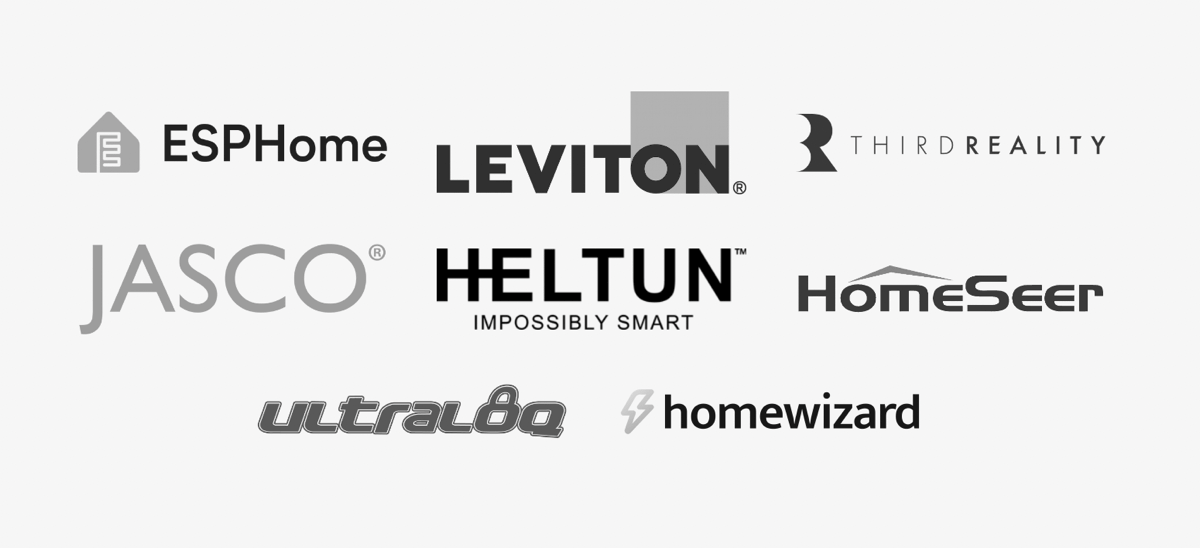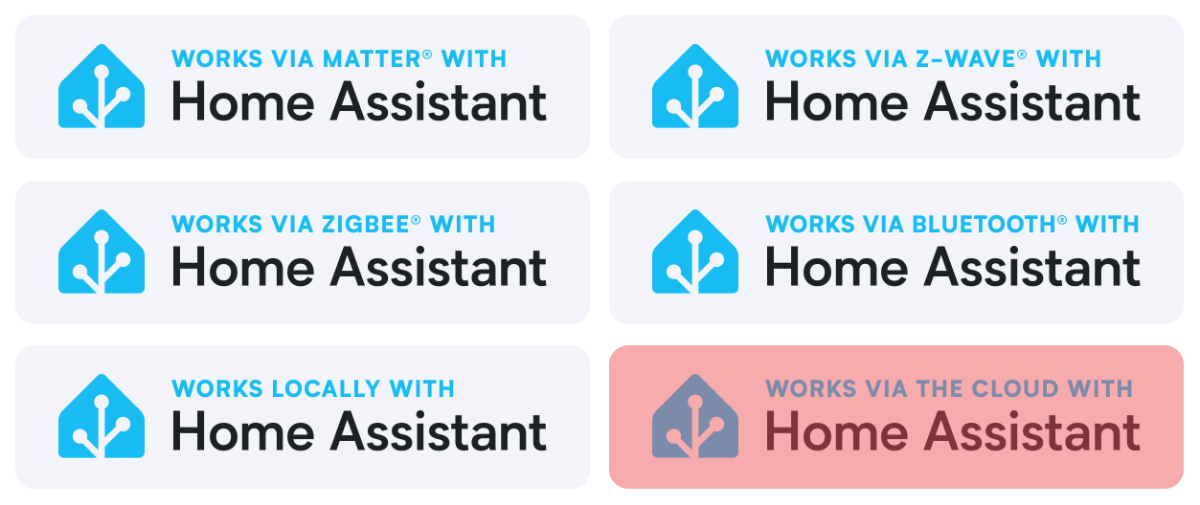 Art by Clelia Rella
Art by Clelia Rella
After two successful years of Works with Home Assistant, we’re continuing our work to improve this program. With this in mind, the program will move to the non-profit organization that owns Home Assistant, the Open Home Foundation, which will ensure it is always aligned with the values of the Open Home.
Read on to see how we’re making several small but important changes to add more clarity to the program, and ultimately working to build a better, larger hardware ecosystem of smart home devices.
What is Works with Home Assistant
When you want to add something to your smart home the choices can be daunting; we want stable, supported devices that are built on standards that last. We understood how hard it could be to navigate all this and set up Works with Home Assistant in 2022, clearly indicating to users which brands provided the best smart home experiences and will continue to do so into the future. While also encouraging brands to step up their openness, compatibility, and long-term support.

This program has been quite successful and now includes seven companies, including Leviton, Third Reality, Ultraloq, Jasco, Heltun, HomeSeer, and HomeWizard. Our community regularly recommends the brands in this program, not only because they carry the “Works with” logo but because they just work. This seamless operation is because Nabu Casa tests devices and works with the brand to ensure their software meets our requirements to provide what we consider to be the best Home Assistant experience. They also guarantee when joining that they will address issues and maintain support with Home Assistant over time.
We have had lots of positive feedback from the brands in the program. First off, if you’re already doing things right, i.e. focusing on local control, supporting users, and keeping software compatible, it’s relatively easy to join. It is also significantly more affordable compared to other partner programs. We want to connect our users to good hardware and help reward the brands that make the right decisions: win-win.
Open Home Foundation steps in
This year we announced the Open Home Foundation, a non-profit organization that now owns and governs the Home Assistant project. It makes logical sense that Works with Home Assistant now sits alongside its parent organization, but there are other key benefits. Specifically, it is now clear that this program is not a commercial endeavor; it is solely here to encourage a better-supported hardware ecosystem for Home Assistant.
Nabu Casa, the commercial partner of the Open Home Foundation, previously successfully administered the program. By placing the program under the foundation, it provides another layer to ensure the program remains focused on its mission.
The update
While we’re making this shift from Nabu Casa to the Open Home Foundation, we’re also taking the opportunity to do some housekeeping, improving the program on several fronts.
From now on the program will be certifying individual devices instead of whole brands. Previously, an integration was approved for Works with Home Assistant, and all devices that could work with the integration could fall under the program. By making testing and certification device-specific, it becomes much clearer to users which devices they can purchase with confidence. We will soon start listing devices that have been certified specifically.
 No brands have used the Cloud badge before, so no one is affected by its removal.
No brands have used the Cloud badge before, so no one is affected by its removal.
The cloud badge has been discontinued and this is due to our belief, and observation, that all cloud-based products are always doomed to stop working, some sooner than others. Considering the cases over the past year of cloud-based devices becoming useless after the cloud service they depended on was shut down, and the lengths needed to keep them somewhat functional, we no longer believe the Works with Home Assistant promise can be upheld by cloud-based devices.
Conclusion
We want to see Works with Home Assistant continue to grow, ultimately covering every smart home device category, allowing for a home completely made of products that will give the best experience. We’d recommend users to always consider these products first, and also encourage more brands to get in touch to join. Let’s build a more open hardware ecosystem together.
This is a companion discussion topic for the original entry at https://www.home-assistant.io/blog/2024/08/08/works-with-home-assistant-becomes-part-ohf




